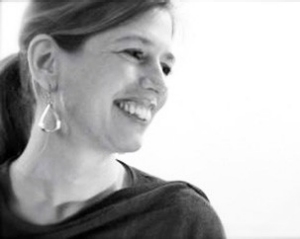This is a tall order with which many in higher education are currently contending. On March 8, International Women’s Day, I’d like to think about how a feminist university might be able to respond to these 20th-century challenges — and, in so doing, open up new possibilities for social innovation.
A feminist university is a next-generation university that places social justice at the centre of its mission and practice. It is a university that prides itself on creating access and opportunity for any student desiring an undergraduate education, that develops innovative strategies to rectify institutional inequities (for example, between full-time and adjunct faculty, between faculty and staff, and between women and men in academic leadership), and that, with community partners, offers best practices of transformation for other institutions similarly striving to rectify historical injustices.
A feminist university is one that is deeply attentive to what Canadian political theorist Rita Dhamoon calls the production of difference. When one starts from the assumption that there is a mainstream to which others must conform, an identity becomes “a symbol of difference” in which histories and practices of oppression are effectively erased. Rather than celebrating “diversity,” therefore, Dhamoon’s project calls for a disruptive praxis, in which “meaning-making processes that create and sustain relations of domination” are brought fully to light.
Building off of Dhamoon’s insights, a feminist university does not call for the inclusion of marginalized others (such as women, racialized minorities, and sexual minorities) into a pre-existing hierarchy, but rather disrupts and reshapes the forces of knowledge production, the relationship between teaching and learning, and the means by which creative output is measured and valued.
So how might a feminist university address one example of a major problem in the North American academy today: “the baby penalty”? Research suggests that men with children are about 20 percent more likely than women with children to secure tenure. Research also suggests that collective solutions, namely paid parental leave and affordable quality daycare, can go a long way to resolving this deep inequity. That has certainly been the case with respect to the development of my own career at Concordia where three year-long parental leaves and the availability of excellent CPE care have enabled me to mature as a scholar, teacher, and parent.
But Concordia offered something more: the opportunity to become a social innovator. Five years ago when I came to my home department of political science and said that I wanted to work on the challenges faced by Canadian transgender children and their families, my colleagues didn’t blink. Indeed, although I was hired as the “China specialist,” I was given the flexibility and support necessary to carve out a whole new niche of study and activism. This nurturing response was not accidental: indeed, my department had early on committed to the importance of work-life balance and to reward creative professional development in its many unique variations.
Rethinking the university project, and its social value through a feminist lens, I would argue, alerts us to the importance of collective solutions to individual dilemmas. In this sense, the drastic provincial cuts to education, to the CPEs, and to so many of our service sectors seriously undermines our capacity to re-imagine ourselves as a society. In fact, with upstart universities such as Concordia fostering new models of collective excellence, it may be time to appreciate how far feminism has taken us, in order to appreciate how far it can take us next.
Learn more about Women’s Studies offered at Concordia and about the Simone de Beauvoir Institute.
